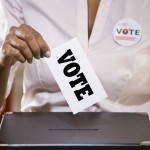 Changing thoughts and behaviors is one of the trickiest endeavors we can seek to undertake. Whilst doing so has many applications, few are as important as in the political sphere, where politicians seek to persuade and cajole people to switch their allegiance to their own cause.
Changing thoughts and behaviors is one of the trickiest endeavors we can seek to undertake. Whilst doing so has many applications, few are as important as in the political sphere, where politicians seek to persuade and cajole people to switch their allegiance to their own cause.
Traditionally, we’ve long believed that people act in a way that supports their core views and preferences, so life long Democrats are likely to vote Democrat and vice versa.
Alas, of course, some people do change their minds over time, and a recent study from researchers at Harvard and Stanford universities, set out to explore just why people do that.
Chicken or egg?
The study found that our political attitudes are actually a consequence of our actions, and not as was previously thought, their cause.
At the heart of their theory is cognitive dissonance, which of course asserts that we become very uneasy when we act in ways that strays from our beliefs. To minimize our discomfort therefore, we adapt our attitude to better fit the actions we undertook.
“There’s a whole host of things going on in social psychology, psychology, and behavioral economics about how humans act and how preferences are formed” that can shed more light on “why politics is the way it is,” the authors say.
The authors believe that the framework they created could help to predict how and when our political opinions may change, and therefore what kind of messages might help to impart that change.
Cognitive dissonance in politics
Many political candidates operate in this cognitive dissonance based context by promoting seemingly apolitical qualities in themselves, such as their demeanor or personality.
They try and be as vague as possible about policy positions to try and reduce the dissonance in the eyes of the electorate.
“The less they know about your policies, the less strife they’ll feel in voting for you if they disagree with you,” the authors say.
Of course, it also highlights the importance of ‘catching’ voters at a young age. If you can manage that then they are much more likely to continue giving you their support for some time.
“What we know is that just the act of voting for a candidate seems to increase your affiliation toward that political party over time and makes you a more habitual voter over time,” the authors reveal.
In the upcoming American presidential election, there is likely that parties with a combative primary process, as the Republicans seem likely to have, will suffer in the general election as voters will have to reconcile the fact that they opposed a candidate during the primaries, yet may have to vote for them in the general election. There is a real danger that such people will simply sit out the election.
“This is why you see so much intense management in primary season of endorsements from candidates who dropped out and a lot of rallying the party around a candidate … to make sure that everyone’s on the same page,” the authors conclude. “The longer these primaries go, it could be the case that the more entrenched people’s attitudes become, and it’s harder to dislodge those.”